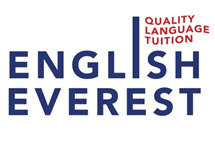We all have different reasons as to why we need English. They vary from marriage, to work, to the desire to meet new people, to going to university. But there are also other less obvious reasons. To get a better job, to appease one’s parents, to take tests, and to fit in with the crowd, among others. This is where there are differences in approaches to learning, and the results of that learning.
If we look at the title of this post, the answer becomes clear. There are many people who learn English and there are just as many who study English. You may say “but they both mean the same thing”, but you would be wrong. When you learn something, the purpose is to know more and to use the learning to improve oneself in whatever you are learning. When you study something you are going through an objective, whether that be a book or a course. This means that you complete (more often than not) the material or syllabus of the course or book. But has the course or book merely been ‘checked in the right place’ to say that it has been completed, or has it produced an improvement in the student who has studied it?
As a teacher, I have come across both types of students. Those who learn, and those who study. I have to say that in most cases the ones who have ‘learnt’ have shown significant improvement over those who have ‘studied’ This is another reason why I am not a keen lover of measuring English by test results. You can study how to take a test, but you cannot learn how to take a test because by its very nature, a test is just a set of simple instructions asking you to do something. There is nothing to ‘learn’ but you have to ‘study’ the instructions so you know what you have to do. If you have learnt the material you need to be successful at a test then you are a learner. if you have studied the likely answers to the test, then you are a studier.
There are learners and there are studiers. It is better to be the former, not the latter.





